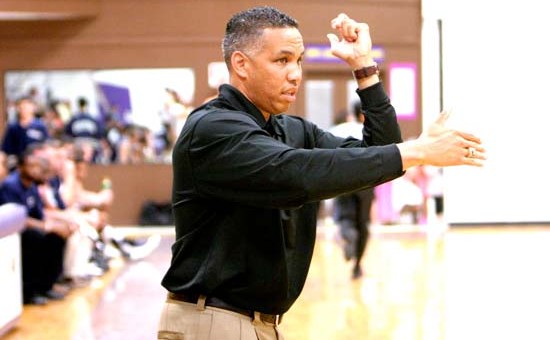HoopDirt.com Guest Blog: Leadership – Kevin Sutton Assistant Coach Georgetown
Recently, I was having a conversation with one of my former players, who I
like to call my “living trophies”. He is an assistant at another high major
program and we were discussing leadership. As a player, he was one of the
greatest leaders I’ve ever had the pleasure of coaching. And now as a coach,
I feel like he has maintained and even improved his amazing ability to lead.
That conversation drove me to write down my thoughts on how one can be
an effective leader as a coach.
Here are my thoughts on leadership:
Great Coaches and Leaders:
I. Know how to manage and lead different personalities well:
A. They create an atmosphere where opinions are welcome.
B. They allow for ownership of the team to be shared without sacrificing the
whole for its parts.
II. Know that their egos must come last:
A. They understand the importance of the proverb “A candle loses nothing
by lighting another candle, but creates twice the illumination.”
B. They know that when one person on the team has success, we all have
success.
III. Are great at communicating:
A. They have an understanding of the many different forms of
communicating: verbal, non-verbal, written, email, twitter, facebook, etc.
B. They have the ability to clearly and consciously articulate the mission,
vision, objective and strategy of their program or company that will lead to
success.
IV. Treat their staff, and everyone affiliated with their program, with respect
and dignity:
A. They take the time to get to know their people on a personal level.
B. They foster a family atmosphere.
V. Have a thirst for knowledge, for learning and for teaching:
A. They are willing to learn different ways to do their job better and
experiment with new methods, even if their old ways are proven to work well.
B. They are constantly asking questions.
C. They try to stay on the cutting edge in their profession.
D. They use every opportunity to teach. “Teachable Moments” are when they
shine the brightest.
VI. Have a tremendous “feel” for their profession or craft:
A. They know whom to play, when to play them and for how long.
B. They understand and embrace “the moment.”
C. They respect the past, are “present” in the present, and are eager for the
future.
VII. Are innovative thinkers:
A. They embrace “outside the box” thinking.
B. They have the ability to read the “tea leaves” and make appropriate
changes while anticipaing situations several moves ahead.
C. They are a part of governing bodies that are changers of their game,
business, or industry.
VIII. Have a philosophy for their coaching and leadership style:
A. They develop philosophies over time through trial and error. The
philosophies are created by years of experiences and through the
observations of other programs and organizations.
B. They analyze the strengths and weaknesses of previous programs or
organizations they have worked for to create their philosophy.
IX. Nurture and grow new leaders:
A. They create an environment where growth can and must occur.
B. They often will play “devil’s advocate” to teach a person how to define
their belief on an issue, idea, or rule.
C. They don’t want all “yes men”, because they are confident enough to
know that they are not always right. They understand that other people have
great ideas too.
D. They understand the theory of “secure vs. insecure”. They understand
you must share your knowledge freely to train the leader who will eventually
succeed you (Moses trained Joshua, Elijah trained Elisha).
X. Build up instead of tear down:
A. They create a “safe environment” where asking questions to seek clarity is
encouraged and taking risks to inspire growth is applauded.
B. They live by the proverb “give a man a fish, you feed him for a day. Teach
a man to fish, you feed him for a lifetime”.







